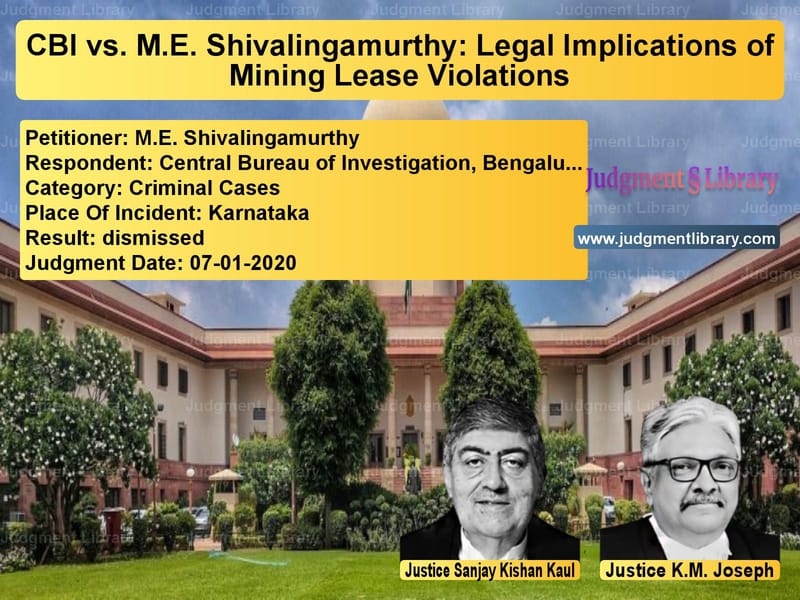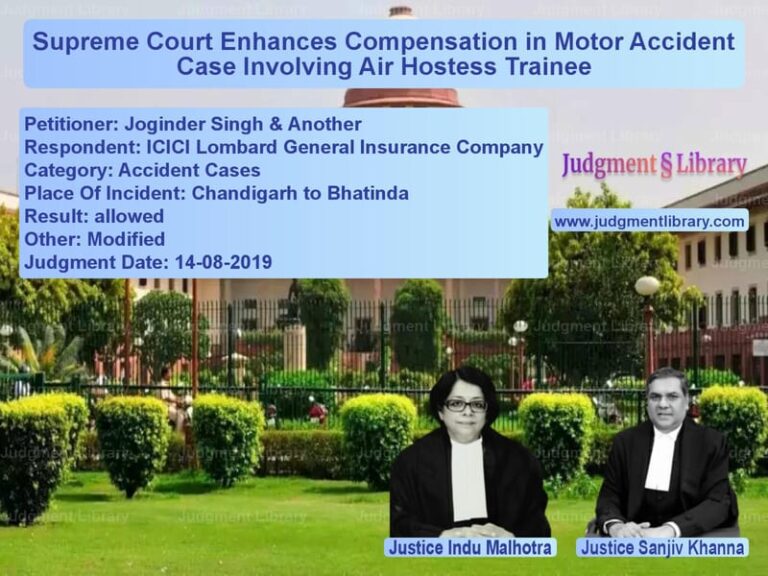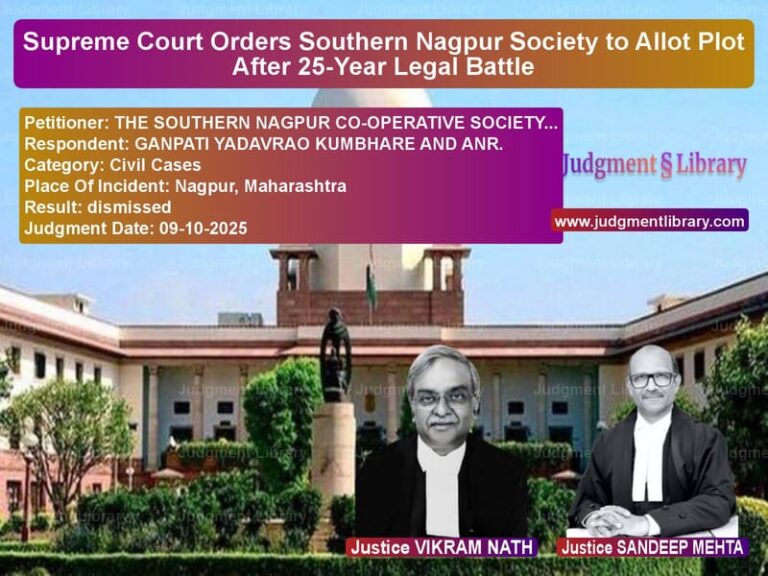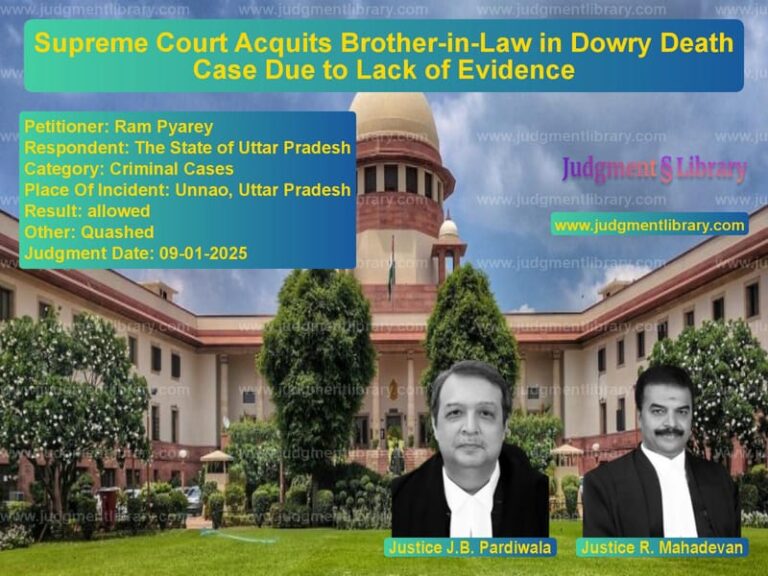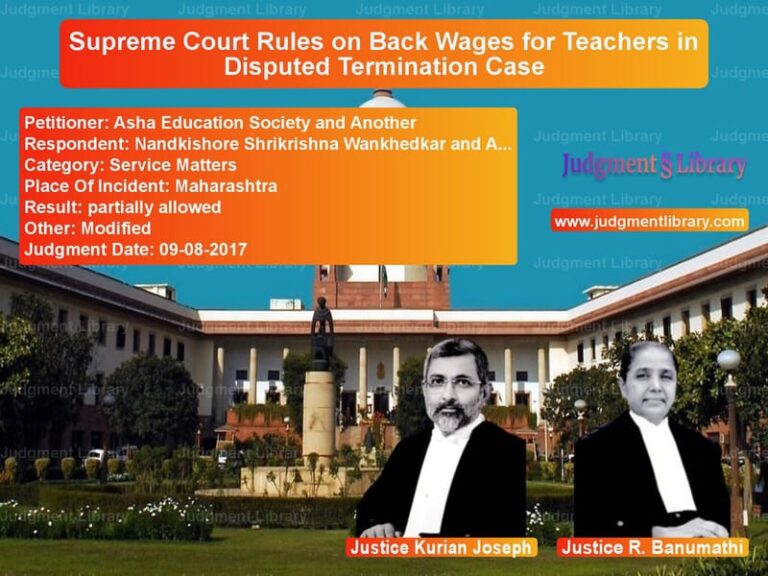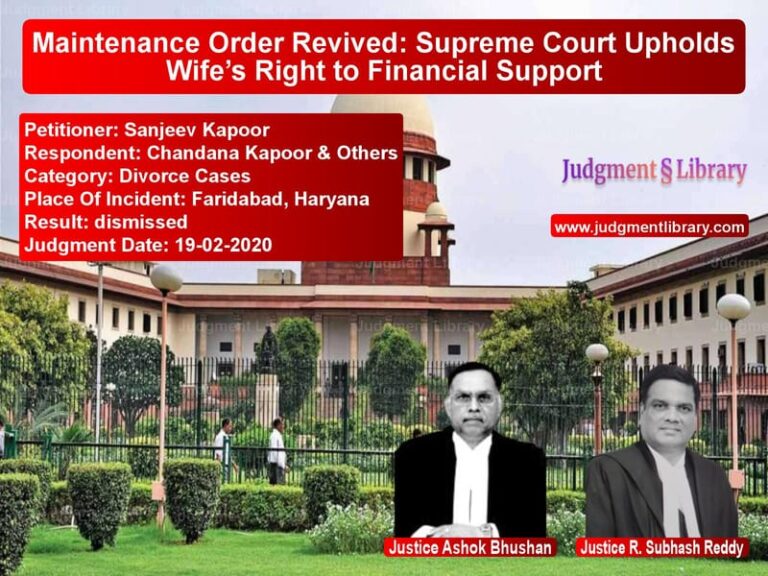CBI vs. M.E. Shivalingamurthy: Legal Implications of Mining Lease Violations
The case of M.E. Shivalingamurthy vs. Central Bureau of Investigation, Bengaluru, revolves around allegations of corruption and criminal conspiracy involving the reconstitution of a mining firm in Karnataka. The Supreme Court was tasked with determining whether the appellant, a high-ranking public official, had acted in violation of the law by permitting mineral dispatch permits (MDPs) to be issued under questionable circumstances.
Background of the Case
The appellant, M.E. Shivalingamurthy, was the Director of Mines and Geology in Karnataka when an FIR was filed against him and other accused persons, including the partners of M/s Associated Mineral Company (AMC). The investigation was triggered by an order from the Supreme Court in connection with illegal mining activities in the state.
The allegations centered around a letter submitted by ex-partners of AMC, which sought permission for mineral transportation under new partnership arrangements. The prosecution claimed that the appellant, despite recommendations from his subordinates to seek legal opinion, bypassed the process and authorized the issuance of MDPs in violation of the Mines and Minerals (Development and Regulation) Act, 1957.
Arguments of the Appellant
The appellant argued that:
- He had an impeccable record as a public servant, with no history of misconduct.
- The firm had been reconstituted several times before without requiring prior government sanction under Rule 37 of the Mineral Concession Rules, 1960.
- The issuance of MDPs in the name of the firm, rather than individual partners, was a standard administrative procedure.
- He had spoken to the Deputy Director (Legal) before making his decision, though the Deputy Director later denied this interaction.
- The case against him was based purely on circumstantial evidence and lacked direct proof of wrongdoing.
Arguments of the Respondent (CBI)
The Central Bureau of Investigation (CBI) countered that:
- The appellant’s actions constituted a clear violation of Rule 37, which mandates prior government approval before transferring mining lease rights.
- The appellant falsely claimed to have sought legal opinion before authorizing the issuance of MDPs.
- The reconstitution of the firm effectively transferred control of the mining lease, which required explicit government sanction.
- The appellant’s role in approving the MDPs despite internal recommendations for legal scrutiny demonstrated his involvement in a larger conspiracy.
Key Observations of the Court
The Supreme Court, after analyzing the legal framework and the sequence of events, noted that:
- The appellant’s assertion that he had consulted the Deputy Director (Legal) was contradicted by the latter’s statement.
- Previous instances of firm reconstitution did not automatically justify the appellant’s actions in this case.
- There was sufficient material to establish a prima facie case of criminal conspiracy, fraud, and breach of trust.
- The High Court had correctly reversed the trial court’s decision to discharge the appellant.
Verbatim Arguments of the Court
The Court observed:
“Applying the formulae of some/mere suspicion – grave suspicion, the evidentiary material placed before the court against respondent tilts more towards grave suspicion. The subject matter involved in this case is the natural resource of the country, and the alleged offense is said to have caused loss to the State exchequer substantially.”
The Court further noted:
“The learned Trial Judge in the order impugned has made an omnibus observation that his action does not fasten criminal liability on him and the statement of the witnesses does not show that he committed criminal conspiracy. Though there was no direct evidence, the learned Trial Judge has lost sight of incriminating material appearing in the circumstantial evidence placed by the prosecution.”
Final Judgment
The Supreme Court upheld the High Court’s ruling, refusing to discharge the appellant. The Court emphasized that at the stage of framing charges, the accused cannot rely on his defense material. The appellant was found to have acted in violation of statutory provisions, thereby warranting a full trial.
Final Verdict: Appeal dismissed.
Petitioner Name: M.E. Shivalingamurthy.Respondent Name: Central Bureau of Investigation, Bengaluru.Judgment By: Justice Sanjay Kishan Kaul, Justice K.M. Joseph.Place Of Incident: Karnataka.Judgment Date: 07-01-2020.
Don’t miss out on the full details! Download the complete judgment in PDF format below and gain valuable insights instantly!
Download Judgment: M.E. Shivalingamurth vs Central Bureau of In Supreme Court of India Judgment Dated 07-01-2020.pdf
Direct Downlaod Judgment: Direct downlaod this Judgment
See all petitions in Fraud and Forgery
See all petitions in Money Laundering Cases
See all petitions in Bail and Anticipatory Bail
See all petitions in Judgment by Sanjay Kishan Kaul
See all petitions in Judgment by K.M. Joseph
See all petitions in dismissed
See all petitions in supreme court of India judgments January 2020
See all petitions in 2020 judgments
See all posts in Criminal Cases Category
See all allowed petitions in Criminal Cases Category
See all Dismissed petitions in Criminal Cases Category
See all partially allowed petitions in Criminal Cases Category

